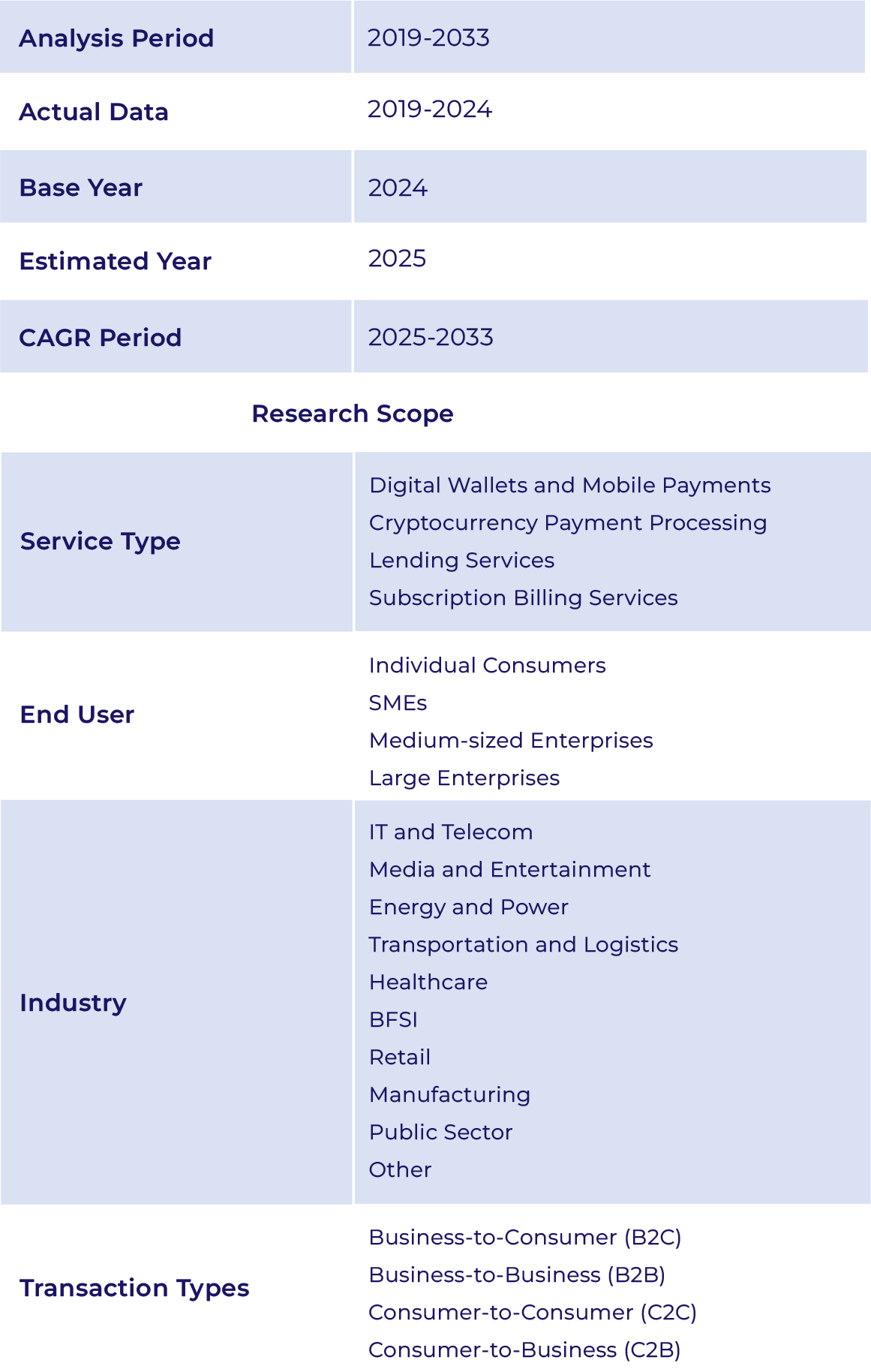Report Format:
![]()
![]() |
Pages: 110+
|
Pages: 110+
South Africa Fintech Digital Commerce Market Growth and Performance
- The South Africa fintech digital commerce market size is poised to achieve US$ XX6.88 Billion in revenue by 2032, driven by an anticipated Compound Annual Growth Rate (CAGR) of XX.0% from 2024 to 2032.
- Industry analysts predict that in South Africa, the primary segment by service type, is set to be digital wallets and mobile payments, boasting a market value of US$ XX5.25 Billion by 2032.
South Africa Fintech Digital Commerce Market Outlook
The South Africa fintech digital commerce market is experiencing a significant transformation, driven by rapid digital adoption, financial inclusion efforts, and evolving regulatory frameworks. With fintech solutions playing a crucial role in bridging the financial services gap, digital commerce is expanding at an unprecedented rate. The South Africa fintech digital commerce market outlook remains positive, supported by a 95% mobile penetration rate and 47.7% e-commerce market penetration. The insurance sector, with a 14.2% penetration rate, is being disrupted by insurtech startups offering more accessible and affordable products. Meanwhile, mobile banking and payments continue to dominate, with the rise of SuperApps that integrate multiple financial services under one digital ecosystem.
South Africa Fintech Digital Commerce Market Growth and Development
The South Africa fintech digital commerce market growth is fueled by increasing digital transactions, high mobile penetration, and rising e-commerce adoption. The market is forecasted to grow at a CAGR of XX.9%, with digital payments, lendtech, and insurtech contributing X1.1% of total fintech revenue, valued at ZAR XX.7 billion (USD X.2 billion) in 2023. Moreover, with 24% of South Africans remaining unbanked, alternative financial solutions such as mobile money, microloans, and digital wallets are driving financial inclusivity.
South Africa Fintech Digital Commerce Key Market Trends
Several South Africa fintech digital commerce market trends are shaping the industry:
- Rise of Digital Payments: Contactless and mobile payments are becoming the norm, with an increasing preference for cashless transactions.
- Insurtech Expansion: The insurance sector is embracing digital platforms to enhance customer experience and improve penetration.
- Alternative Lending Solutions: Peer-to-peer lending and microfinance platforms are offering accessible credit options.
- Blockchain and Cryptocurrency: Fintech companies are exploring blockchain technology for secure and transparent transactions.
- RegTech and Compliance: With evolving regulatory landscapes, fintech firms are leveraging technology to enhance compliance and security measures.
South Africa Fintech Digital Commerce Competitive Landscape
The South Africa fintech digital commerce market competitive landscape consists of traditional banks, fintech startups, and global financial players. Established fintech firms are collaborating with financial institutions to create more seamless and integrated solutions. Notable players in the market include:
- Yoco – A leading payment solutions provider for SMEs.
- JUMO – Specializing in AI-driven financial services.
- TymeBank – A digital-first bank focusing on low-cost banking services.
- Luno – A cryptocurrency exchange gaining traction in digital asset investments.
- Nedbank and Standard Bank – Traditional banks innovating through fintech partnerships.
South Africa Fintech Digital Commerce Market Regulatory Framework and Challenges
While the fintech industry in South Africa is growing, it faces regulatory hurdles and operational challenges. Regulatory bodies like the Financial Sector Conduct Authority (FSCA) and the Intergovernmental Fintech Working Group (IFWG) are working to establish guidelines that balance innovation and consumer protection. Key challenges include:
- Regulatory Uncertainty: Clarity is needed for fintech companies operating in alternative finance and crypto markets.
- Cybersecurity Risks: Increasing cyber threats require robust security frameworks.
- Customer Acquisition Costs: High marketing and customer acquisition costs remain a barrier for smaller fintech firms.
South Africa Fintech Digital Commerce Market Scope







